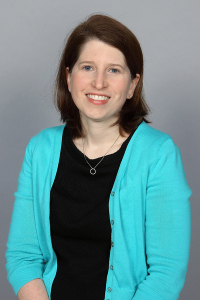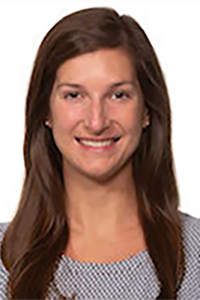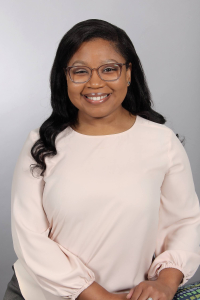The UAB Pediatric Hematology-Oncology Fellowship Program is a three-year training program approved by the Accreditation Council for Graduate Medical Education and affiliated with the Pediatric Residency Program at the Heersink School of Medicine. The program provides an educational environment for fellows to develop a comprehensive understanding of the pathophysiology of pediatric hematologic and oncologic disorders and excellence in the clinical diagnosis and management of these disorders. The program emphasizes the fundamentals of clinical diagnosis and provides an abundant and diverse clinical experience. Fellows are mentored by faculty composed of academic hematologists-oncologists, basic science researchers, clinician-educators, and clinical researchers. The program is housed in the only free-standing children’s hospital in the state and fellows rotate through the hematology-oncology inpatient service, stem cell transplant, outpatient hematology, and neuro-oncology. Additionally, trainees have access to specialized programs for childhood cancer survivors, developmental therapeutics, sickle cell disease, bone marrow failure disorders, hemostasis, and thrombosis. During their second and third years, fellows may take advantage of world-class basic science and translational research laboratories across the UAB campus or pursue clinical research activities while obtaining a Master of Science in Public Health. The program is flexible and is tailored to suit each individual's interests, previous experience, and future career goals. Upon completion of the program, our fellows are well prepared for careers in academic pediatric hematology-oncology.
The core aim of the UAB Pediatric Hematology-Oncology Fellowship Training Program is to graduate excellent, independent pediatric hematologists-oncologists for careers in academic medicine who will be local and national leaders in the field. This is achieved by providing a comprehensive three-year training program that enables fellows to gain competence in all areas of pediatric hematology-oncology, including research, education, and quality improvement activities. UAB pediatric hematology-oncology fellows are motivated and passionate about improving the lives of families affected by childhood cancer and blood disorders through advocacy, education, clinical excellence, and research. Integral components of the comprehensive program include acquisition of clinical expertise and procedural skills required for the diagnosis and treatment of pediatric hematology, oncology, and stem cell transplant patients. Additionally, each fellow selects a research mentor, and under the guidance of that individual along with their scholarship oversight committee, develops a hypothesis-driven research project.
The UAB Pediatric Hematology-Oncology Fellowship program has graduated 34 fellows over the years, many of whom have gone on to become leaders in our field and at their institutions. The strength of this program is evident in the 100% first-time pass rate on the Subspecialty Board Exam (since 2000) and in the impact our graduates have on our field and the children and families we all serve.
Program Information
-
The objectives of the training program in Pediatric Hematology/Oncology are to prepare the fellow for an academic career in Pediatric Hematology/Oncology and to assist the trainee in acquiring a faculty position compatible with his/her clinical and research strengths and goals. When successfully completed, this program will provide trainees with the clinical and academic skills to become Board Certified in Pediatric Hematology/Oncology, and to be competitive for available faculty positions. The focus of the program will be on training of the fellow and not on filling service needs.
The educational goals of this program include development of clinical expertise in the discipline of pediatric hematology, oncology, bone marrow transplant, and radiation oncology; development of technical skills in performance of lumbar puncture, bone marrow aspirate and biopsy, and bone marrow harvest for BMT, review and interpretation of peripheral blood smears, cerebrospinal fluid, and bone marrow aspirate; development of scholarship skills; and development of abilities as an educator.
Our fellows become familiar with all aspects of chemotherapy as well as the pertinent aspects of surgical therapy and radiotherapy in managing patients with malignant diseases. They are also taught the diagnosis, management of complications, and treatment of infections in the compromised host and indications and procedures for transfusion of blood components, including apheresis, and stem cell harvest and infusion. In addition, residents learn to function as a member of a multidisciplinary team serving patients with cancer and chronic hematologic disorders and are guided in the development of skills in communication and counseling, including the recognition and management of psychosocial problems in pediatric patients.
-
Year One
The first year of the program focuses on an intensive clinical experience. The year begins with an orientation in which the fellow is introduced to a wide variety of core topics, chemotherapy ordering instruction and procedures to equip the fellow to be successful.
The rest of the year is composed of:
-
Inpatient Hematology/Oncology (24 weeks)
-
Stem cell transplant and cellular therapies (10 weeks)
-
Outpatient Hematology (4 weeks)
-
Outpatient Clinic (12 weeks)
-
and Research Exploration (2 weeks).
Fellows spend time during their outpatient rotation exploring pediatric pathology, radiation oncology, coagulation and blood banking.
Additionally, fellows have three weeks of vacation annually.
During year one the fellow will be assigned to a continuity clinic one full day each week where they will see all new patients under the supervision of an attending pediatric hematologist/oncologist.
Years Two and Three
During years two and three of the program the fellow will undertake an in-depth study of a specific area of pediatric hematology and oncology under the supervision of a Scholarship Oversight Committee. This project may involve laboratory-based research in one of the many labs in the O'Neal Comprehensive Cancer Center at UAB as well as labs in the numerous centers housed at UAB. Additionally, fellows find inspiration and mentorship in the Institute for Cancer Outcomes and Survivorship. In some circumstances, the fellow may obtain a Master of Science in Public Health or a Ph.D. degree as a component of the fellowship program.
During these years fellows continue to see their own patients in a weekly continuity clinic.
-
-
Children's of Alabama is the only tertiary care children's hospital in Alabama with 332 beds. Benjamin Russell is LEED certified, with “green” buildings that have more natural light, clean air circulation and materials designed to limit toxic emissions creating an environment of wellness for patients and staff alike that is in sync with the COA mission. The hospital sits prominently on the campus of the University of Alabama at Birmingham. The UAB Department of Pediatrics is housed at Children's of Alabama. The hospital has a 24-bed pediatric hematology/oncology floor, an eight-bed Pediatric Bone Marrow Transplant Unit, and a 24-bed PICU.
The Alabama Center for Childhood Cancer and Blood Disorders is a component of the O'Neal Comprehensive Cancer Center at UAB, as designated by the National Institute of Health, is the state's only comprehensive center for pediatric blood and malignant disorders, treating 90% of all pediatric cancer and other blood disorders patients diagnosed in Alabama. We also house the state’s only dedicated pediatric bone marrow transplant facility. We are the single largest provider of specialized pediatric services in Alabama for: leukemia, brain and spinal cord tumors, pediatric bone marrow transplantation, sickle cell disease, hemophilia and other bleeding disorders.
In 2019, the Division of Pediatric Hematology and Oncology provided care to:
-
Approximately 140 children and adolescents newly diagnosed with cancer
-
Over 300 cancer patients on active cancer therapy
-
Well over 1,000 survivors of childhood cancer and their families
-
13 patients treated on early phase clinical trials
-
13,000+ outpatient clinic visits
-
2000+ patients treated for serious blood disorders including sickle cell disease, hemophilia and bleeding disorders.
The division is an active member institution of Children's Oncology Group (COG), an international 200+- member collaborative academic research group focused on clinical trials in childhood cancer. Additionally, the division is active in multiple consortiums providing access to new and innovative therapies including the prestigious COG Phase I Consortium, Sunshine Kids Consortium, ReMission Alliance, Beat Childhood Cancer Consortium.
-
-
Fellows Conference
Covers core topics in Pediatric Hematology/Oncology
Tumor Board
A weekly evidence-based medicine conference involving the multidisciplinary care team designed around the discussion and planning of treatment for patients with new and complex oncologic diseases. The fellows assume major responsibility for the presentation and discussion.
Morphology rounds
Weekly sessions at the microscope with senior faculty to review blood cell identification and characteristics.
Core Educational Curriculum
The monthly fellow’s core conference curriculum has the goal of supplementing individual division-level educational topics that cross all fellowships. Examples of topics to be covered include career development, cultural competency, communication, advocacy, and leadership.
Fellows Roundtable
Fellows Roundtable promotes internal discussion of research-related topics across pediatric divisions and departments. Presentations have covered many types of research related to child health. They may include research in the basic sciences, clinical investigation, public health, health system research, medical humanities, or any other child health-related areas of interest to pediatrics and related subspecialties.
Pediatric Hematology-Oncology Grand Rounds
This conference will provide an ongoing forum about developments in the field. This monthly series will feature national or institutional speakers and will spark communication and collaboration within scientific and clinical programs.
Brain Tumor Board
This monthly clinical case conference will review and discuss in detail all patients' cases followed by the Brain Tumor Board team. Faculty members will bring their own field of expertise, and after detailed case presentation by the Hematology/Oncology attending on service, a group discussion will follow.
CLOT Journal Club
Monthly journal club to critically review and discuss literature pertaining to the diagnosis, treatment and overall management of pediatric venous thromboembolism.
Psychology Rounds
A monthly meeting for fellows with the divisional neuro-psychologist to address wellness issues, including burnout.
-
Smile-A-Mile
Fellows have the opportunity to volunteer at Smile-A-Mile (SAM). SAM is committed to serving families in Alabama who are on the childhood cancer journey by being with them through diagnosis, during treatment and in the years beyond. They provide year-round programs for patients, survivors and their families with the motto “We Fight With You”. Smile-A-Mile’s mission is to ensure these families will never fight this disease alone. Smile-A-Mile is a longtime partner with Children’s of Alabama and provides annual funding for a pediatric hematology/oncology fellow in training with the UAB Division of Pediatric Hematology/Oncology.
-
The Division of Pediatric Hematology and Oncology is committed to advancing research, taking findings from the bench to the bedside and then to the community. The division works in close collaboration with members of the O'Neal Comprehensive Cancer Center at UAB, the Institute for Cancer Outcomes and Survivorship, the UAB Center for Clinical and Translational Science, UAB Center for Outcomes and Effectiveness Research and Education, Children’s Center for Supportive and Palliative Care and UAB School of Public Health. These multidisciplinary collaborations serve as a rich resource to accelerate the pace of discovery across the entire trajectory of disease from diagnosis to survivorship and end of life.
-
Gregory Friedman, M.D., has demonstrated that the deadliest subgroup of medulloblastoma is highly sensitive to a genetically modified herpes simplex virus (HSV). His innovative phase 1 study using modified HSV to attack difficult-to-treat brain tumors began recruiting patients from across U.S. in 2016.
-
Frederick Goldman, M.D., explores the mechanisms of bone marrow failure syndromes, congenital immune deficiencies and works to translate this information to the promotion of novel agents and stem cell therapies for these disorders. His translational research laboratory is addressing unmet needs in hematopoietic disorders using innovative gene correction technology, coupled with BMT, to develop safer cures.
-
Jamie Aye, M.D., in collaboration with Dr. Elizabeth Beierle of pediatric surgery, seeks to advance our current knowledge of pediatric solid tumors through the Tumor Xenograft Project. Using primary human patient tumor models, the Children’s of Alabama-UAB Pediatric Tumor Bank and Tumorgraft Development Program’s long-term goal is to identify agents that are effective treatments for children with tumors having specific genetic and molecular profiles. The program currently has > 100 patient tumors banked. Preliminary studies have demonstrated the tremendous potential of this resource with discoveries featured in multiple peer-reviewed
-
Girish Dhall, M.D., conducts clinical research focused in the design of early-phase (phase I and II) clinical trials as well as of clinical trials utilizing treatment strategies that either avoid or at least minimize the dose and volumes of irradiation in young children with neuronal tumors and patients with central nervous system (CNS) germ cell tumors. His papers on the survival of children with medulloblastoma treated on “Head Start” I, II, & III studies are among the leading publications on the use of high-dose chemotherapy (HDCTx) as an irradiation avoiding strategy in young children with medulloblastoma, especially nodular/desmoplastic medulloblastoma. He co-chaired COG study, ACNS1123, and showed that despite differences in patterns of relapse, approximately 90% of patients with localized non-germinomatous germ cell tumors (NGGCT) can be cured with combination of chemotherapy and reduced dose and volume of CNS irradiation.
-
Our Team

Hilary Haines, M.D.

Mary Elizabeth Littrell, M.D.
